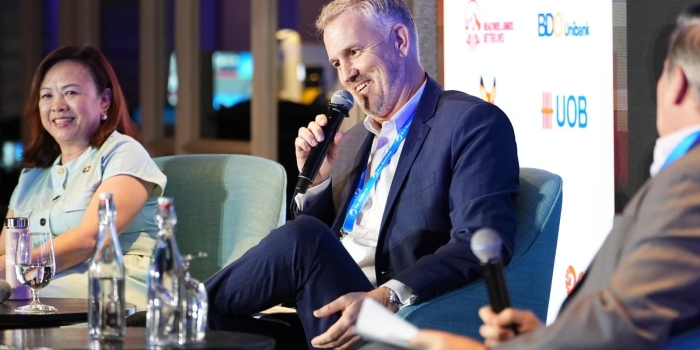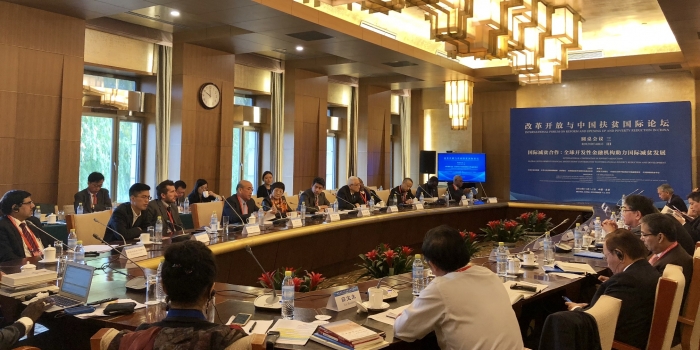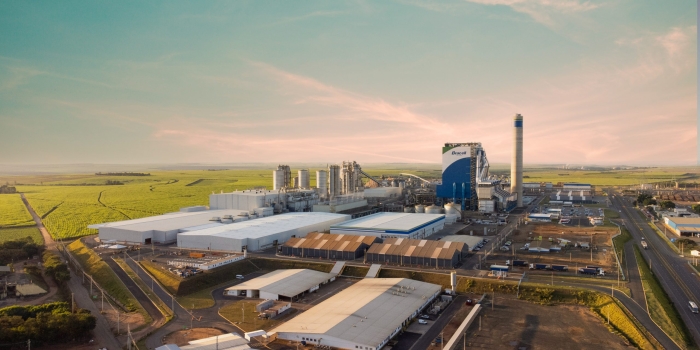“If we keep seeing nature as second to climate, we’ll wake up with nothing around us,” said Craig Tribolet, Director of Sustainability at APRIL Group, speaking at the Eco-Business Unlocking Capital for Sustainability (UCFS) Forum 2025 in Singapore. The comment, delivered during the panel “Shaping the Future of Business through Biodiversity Reporting”, illustrates how to businesses, nature should be just as much of a fundamental concern as climate.
Alongside sustainability leaders from CDL and the Taskforce on Nature-related Financial Disclosures (TNFD), Craig outlined why APRIL places biodiversity at the heart of its operating model. His message was unequivocal: nature is not a risk to be managed; it is the foundation of APRIL’s business.
“We don’t operate without nature, as a plantation manager. Our operations are entirely dependent on it and our responsibility is to manage that dependency well,” he said.
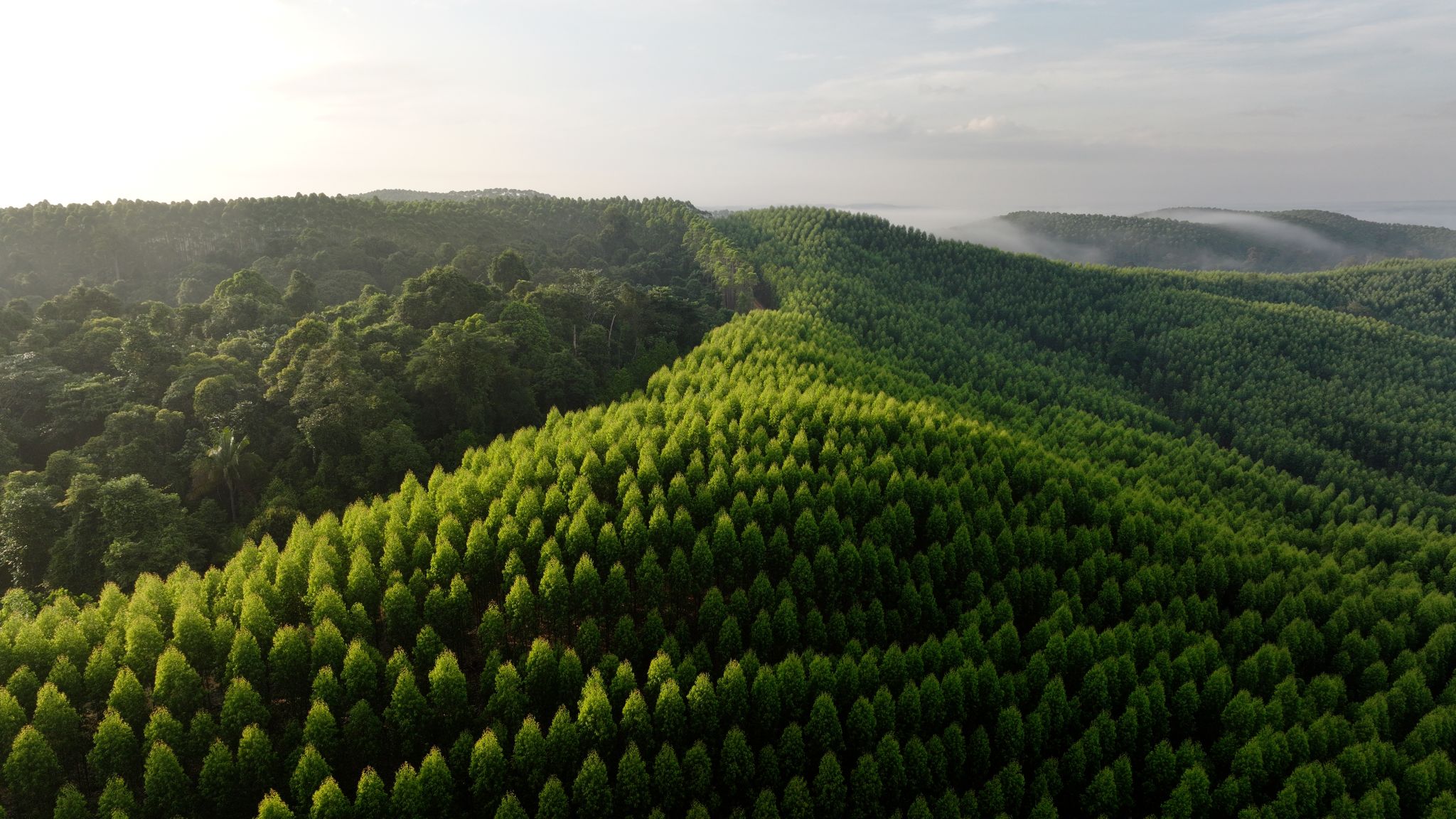
APRIL manages over a million hectares of land in Indonesia, including 465,886 hectares of conservation and restoration land.
Why Nature Is Not Optional
Managing over a million hectares of land in Indonesia, including 465,886 hectares of conservation and restoration areas (roughly six times the size of Singapore), APRIL’s operations are deeply intertwined with the ecosystems they occupy.
For APRIL, biodiversity loss isn’t an abstract issue. It directly influences the company’s resilience, productivity and long-term viability. Protecting nature, therefore, is both an ecological and economic imperative.
This principle is embedded in APRIL’s Sustainable Forest Management Policy (SFMP) 2.0, launched in 2015 and strengthened under its APRIL2030 commitments. The policy sets measurable biodiversity and conservation targets that guide day-to-day decisions.
Craig’s message reflected a broader urgency across industries: the private sector must move beyond treating nature as peripheral, and recognise it as critical to business continuity.
Reporting as an Enabler of Trust
On the topic of biodiversity disclosure, Craig noted that frameworks like TNFD bring much-needed structure and consistency to what leading companies are already practising.
APRIL has long embedded nature-related accountability in its governance and reporting systems, aligning with frameworks such as the Global Reporting Initiative (GRI) and the Science Based Targets initiative (SBTi). The TNFD framework, he explained, adds global coherence and comparability.
“Reporting is a function of, rather than a driver of, our strategy,” Craig said.
Candice Dott, Director of Market Engagement at TNFD, said that Asia-Pacific is leading in TNFD adoption, with 86% of surveyed companies already using or planning to use the framework. She noted that TNFD extends the familiar TCFD (taskforce on climate-related financial disclosures) logic to nature-related dependencies, impacts, risks and opportunities, underscoring the growing shift towards integrated climate and nature disclosure.
Against this backdrop, APRIL views reporting as an enabler of transparency and stakeholder confidence, a means to demonstrate that commitments translate into measurable outcomes. Disclosure builds credibility and as Craig emphasised, “it’s not a substitute for delivery.”
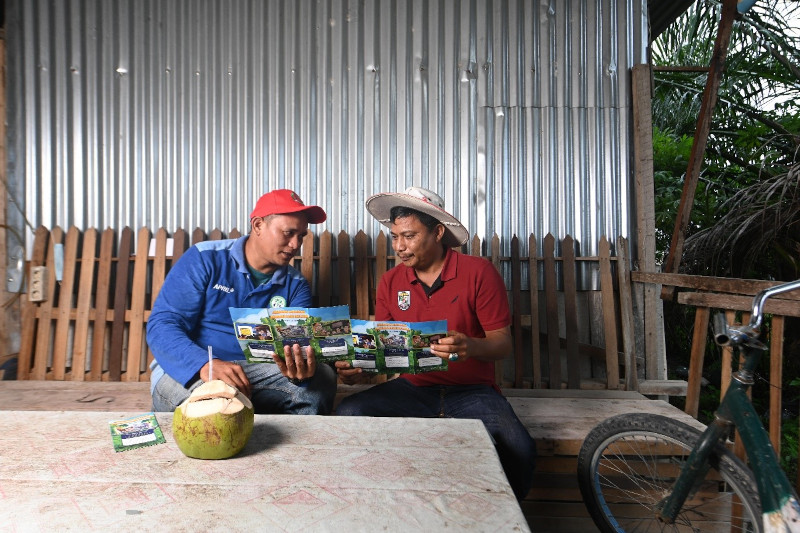
FFVP crew leader socialising fire prevention best practices to local communities.
Grounded Action Through Community Partnerships
Turning from policy to practice, Craig stressed that addressing biodiversity loss requires execution at the landscape level. He pointed to APRIL’s Fire-Free Village Programme (FFVP) as a model of community-driven conservation.
Through voluntary agreements, APRIL supports villages in preventing land and forest fires across more than one million hectares outside its concessions. The programme has enabled community-led protection of over 30,000 hectares of peat and forest areas.
“Communities protecting biodiversity have reduced reliance on fire, which has had a significant impact for our asset base and for people,” Craig noted.
Elevating Nature to Climate Parity
While climate change continues to dominate sustainability agendas and capital flows, Craig called biodiversity loss the “silent crisis.”
Unlike climate change, visible through rising temperatures and extreme weather, nature loss is harder to quantify but equally catastrophic. He urged investors, businesses and policymakers to elevate nature to climate parity, recognising it as co-equal to the sustainability agenda.
At APRIL, this commitment is backed by long-term investment. The company has channelled US$60 million into conservation initiatives over the past four years, funded by a US$1-per-ton wood levy introduced in 2020, ensuring that sustainability financing remains built into the business model.
“We treat sustainability as core to business, not something that competes with it,” Craig said.
A Business Model Built on Stewardship
Closing the discussion, Craig reflected on what biodiversity means for business: it cannot be an add-on.
For APRIL, nature stewardship is synonymous with long-term resilience. The company continues to refine how biodiversity, water and carbon are integrated into decision-making, forest management, and product innovation.
“It’s about ensuring we operate in a way that supports the landscapes that support us. That’s what responsible business looks like. It’s not separate from what we do; it’s at the core of how we grow,” said Craig.
Explore how APRIL integrates 2030 targets into core business operations here: https://april2030.aprilasia.com/



